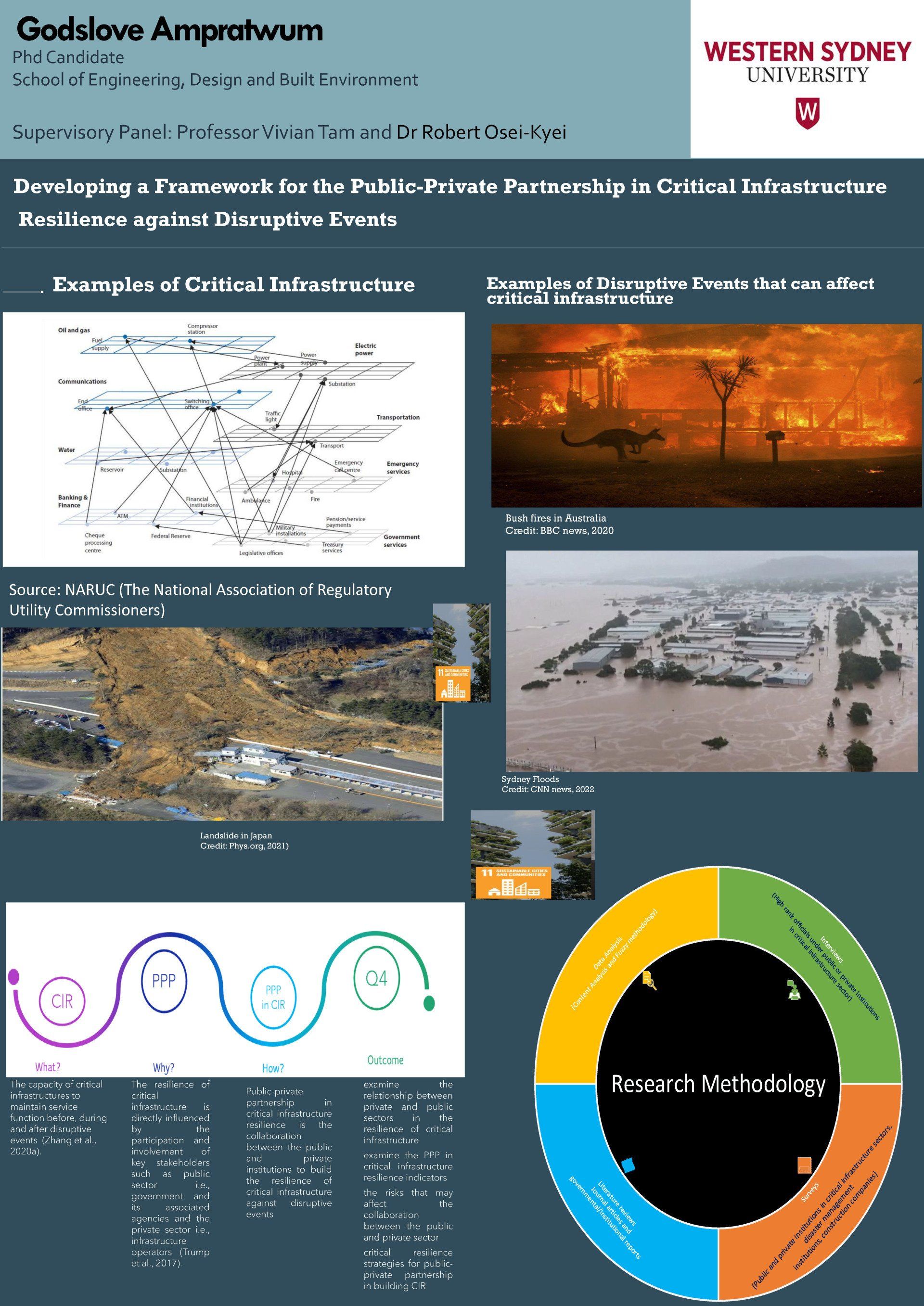Godslove Ampratwum
Higher Degree Research
Developing a Public-Private Partnership Framework for building Critical Infrastructure Resilience against Disruptive Events
The United Nations predict that medium to large-scale disasters will increase by 40% from 2015 to 2030. The United Nations Sustainable Development Goal 11 for instance focuses on making cities and human settlements resilient and sustainable. As a result, infrastructure resilience has drawn attention both in research and practice. Recent disaster and crisis management call for collaborative governance to enhance infrastructure's ability to quickly recover to normal after any disruptive event such as flooding, fire outbreaks, earthquakes, terrorist attacks etc. These disruptive events interrupt the functioning of infrastructure that is critical to the survival of society. Examples of critical infrastructure may include energy transmission and distribution networks, telephone communication networks, transportation systems, and water and gas distribution systems. Public-private partnership is recognised as an effective approach to building critical infrastructure resilience. As a result, my research seeks to explore and examine how an effective public-private partnership can be established with the goal of building critical infrastructure resilience where infrastructure can absorb, resist and recover quickly and timely from the effects of disruptive events.


